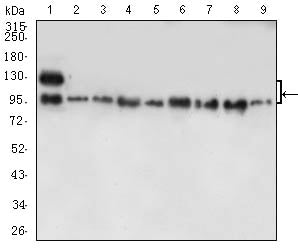
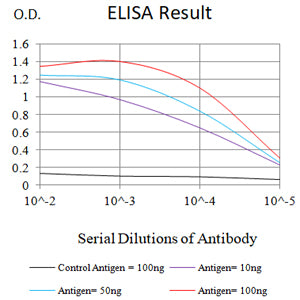
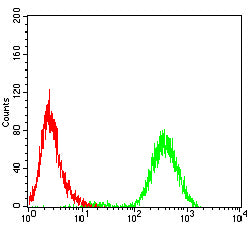
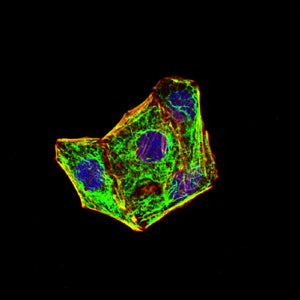
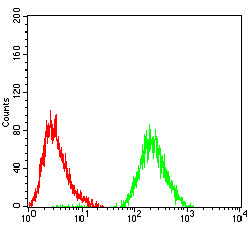
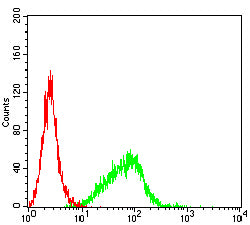
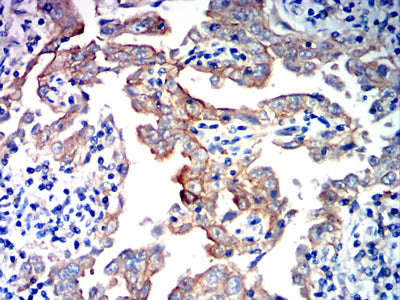
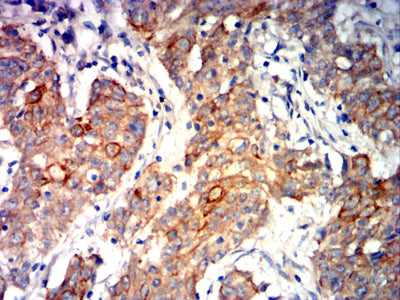
| WB | 1/500 - 1/2000 | Human,Mouse,Rat |
| IF | 咨询技术 | Human,Mouse,Rat |
| IHC | 1/200 - 1/1000 | Human,Mouse,Rat |
| ICC | 1/200 - 1/1000 | Human,Mouse,Rat |
| FCM | 1/200 - 1/400 | Human,Mouse,Rat |
| Elisa | 1/10000 | Human,Mouse,Rat |
| Aliases | UVO; CDHE; ECAD; LCAM; Arc-1; BCDS1; CD324;E-cadherin;E cadherin |
| Entrez GeneID | 999 |
| clone | 6C2A10 |
| WB Predicted band size | 97.5kDa |
| Host/Isotype | Mouse IgG1 |
| Antibody Type | Primary antibody |
| Storage | Store at 4°C short term. Aliquot and store at -20°C long term. Avoid freeze/thaw cycles. |
| Species Reactivity | Human, Mouse, Rat |
| Immunogen | Purified recombinant fragment of human CDH1 (AA:extra(155-354)) expressed in E. Coli. |
| Formulation | Purified antibody in PBS with 0.05% sodium azide |
+ +
以下是关于CDH1抗体的示例参考文献(注:以下内容为示例,实际文献需通过学术数据库验证):
---
1. **文献名称**: "Germline CDH1 mutations in hereditary diffuse gastric cancer: Altered E-cadherin function and clinical implications"
**作者**: Humar, B. et al.
**摘要**: 研究分析了CDH1基因种系突变对E-cadherin蛋白功能的影响,通过免疫组化(使用CDH1抗体)发现突变导致E-cadherin表达缺失,与家族性弥漫性胃癌的发生密切相关。
2. **文献名称**: "E-cadherin transcriptional downregulation in cancer: Mechanisms and functional studies using CDH1-specific antibodies"
**作者**: Berx, G. et al.
**摘要**: 探讨了癌症中E-cadherin表达下调的分子机制,利用多种CDH1抗体进行Western blot和免疫荧光实验,验证了不同肿瘤中E-cadherin的异常表达模式及其与转移的关系。
3. **文献名称**: "Comparative analysis of CDH1 antibody specificity in epithelial-mesenchymal transition models"
**作者**: Becker, K.F. et al.
**摘要**: 比较了不同商业CDH1抗体在检测E-cadherin时的特异性,发现部分抗体在福尔马林固定组织中的灵敏度显著差异,为临床病理诊断提供了抗体选择依据。
4. **文献名称**: "CDH1 mutation screening in hereditary lobular breast cancer families using a validated antibody-based assay"
**作者**: van der Post, R.S. et al.
**摘要**: 开发了一种基于CDH1抗体的免疫组化检测方法,用于筛查遗传性小叶乳腺癌患者的CDH1突变状态,证明其在临床筛查中的实用性和可靠性。
---
建议通过PubMed、Google Scholar等平台以关键词“CDH1 antibody”、“E-cadherin immunohistochemistry”检索最新文献,并关注高影响力期刊(如*Nature Cancer*、*Journal of Pathology*)。
The CDH1 antibody targets the protein E-cadherin, encoded by the *CDH1* gene, a key member of the cadherin superfamily involved in calcium-dependent cell-cell adhesion. E-cadherin is a transmembrane glycoprotein critical for maintaining epithelial tissue integrity and polarity. Its extracellular domains mediate homophilic interactions between adjacent cells, while its intracellular domain binds β-catenin, linking to the actin cytoskeleton via catenin complexes. Loss or dysfunction of E-cadherin is a hallmark of epithelial-mesenchymal transition (EMT), a process driving cancer metastasis, making it a focus in oncology research.
CDH1 antibodies are widely used in research and diagnostics to assess E-cadherin expression levels, particularly in cancers like invasive lobular breast carcinoma and diffuse gastric adenocarcinoma, where *CDH1* mutations or epigenetic silencing are common. In clinical pathology, these antibodies aid in differentiating tumor subtypes and predicting metastatic potential via immunohistochemistry. They also serve as tools in studying cell adhesion, tissue morphogenesis, and signaling pathways. Additionally, germline *CDH1* mutations are linked to hereditary diffuse gastric cancer (HDGC) syndrome, necessitating genetic screening supported by antibody-based validation. Available in monoclonal and polyclonal forms, CDH1 antibodies are optimized for techniques including Western blotting, immunofluorescence, and flow cytometry, underscoring their versatility in both basic and translational studies.
×